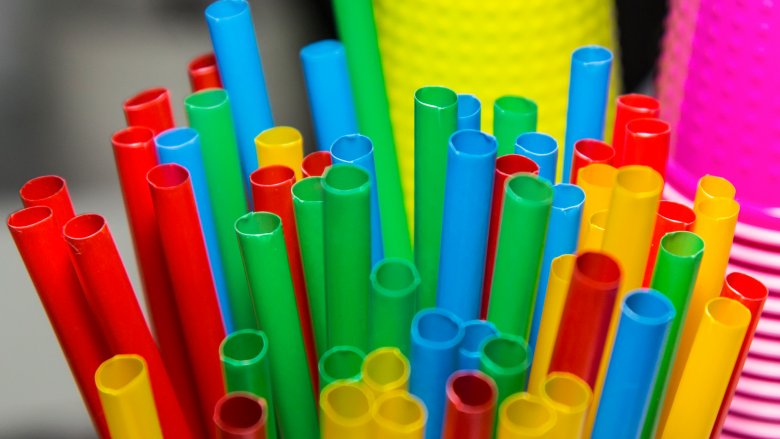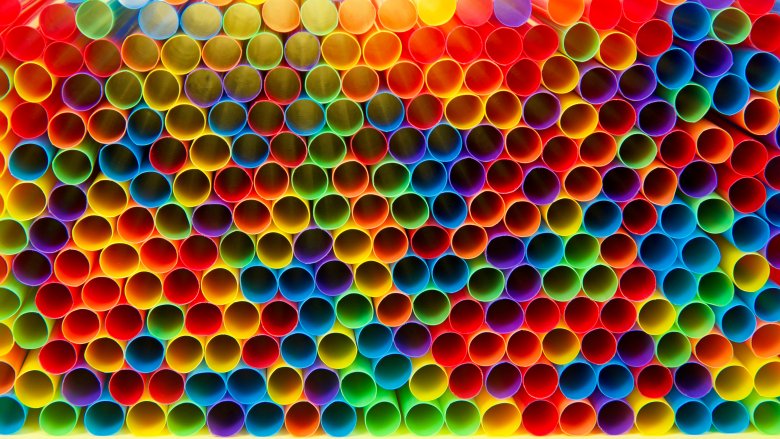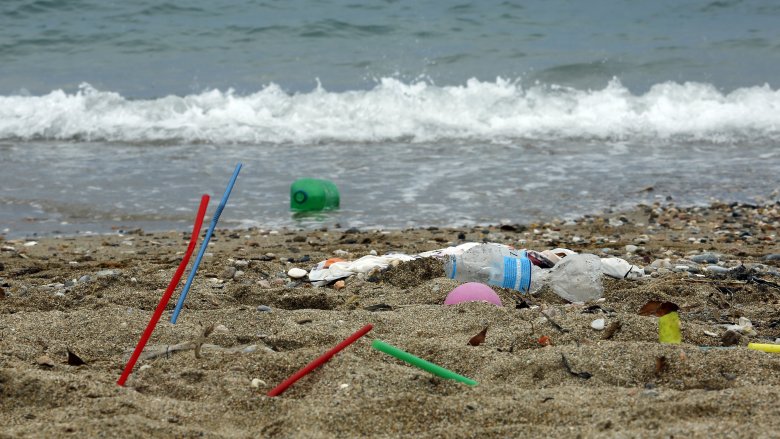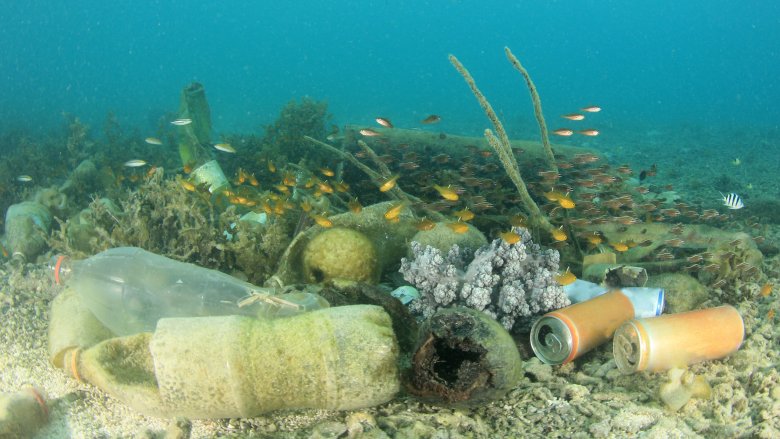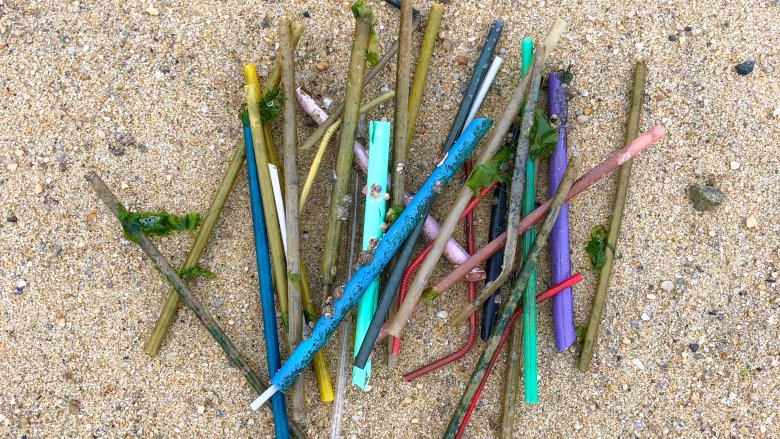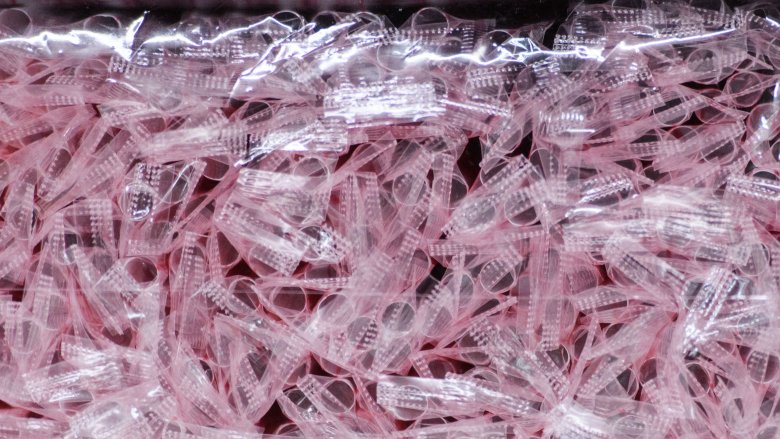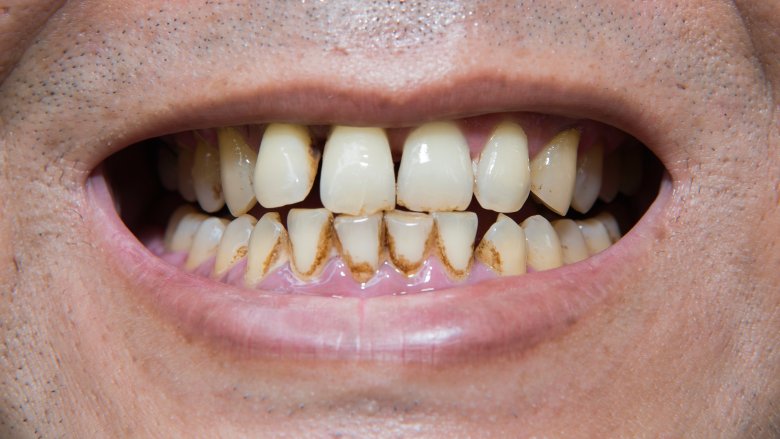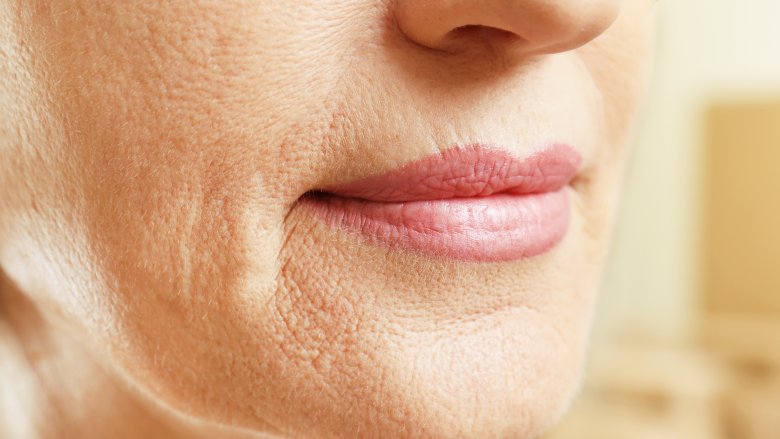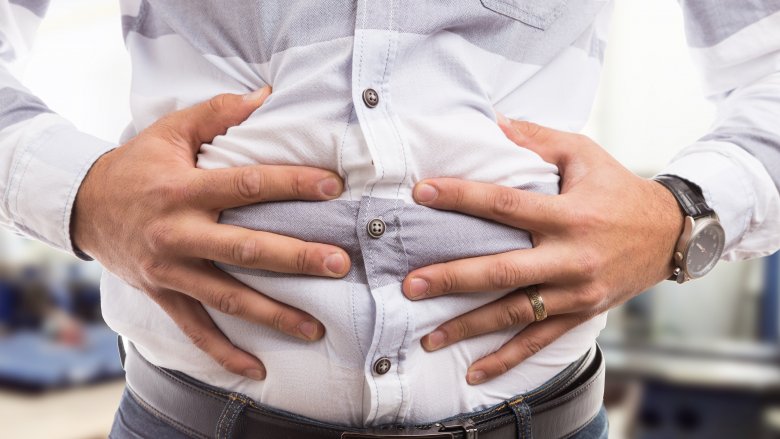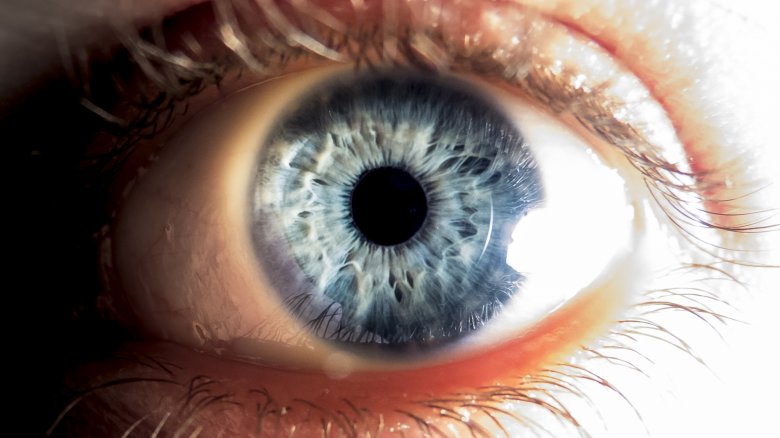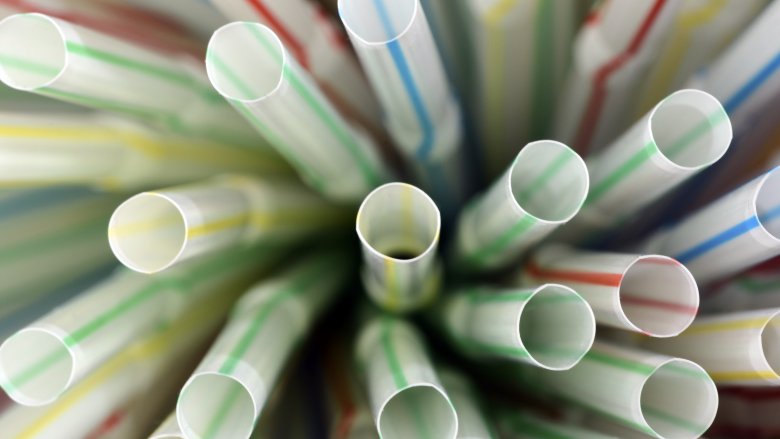The Dirty Truth About Straws
Have you used a plastic straw today? There's a good chance you have, be it one given to you at a fast food restaurant, one you asked for in a bar, or even one you took out of a pack at home. They're practically everywhere — especially in America — and have only become more and more present in our lives during the half century or so that they've existed.
Media attention over the last few years, however, has shone a new light on these iconic drinking utensils. Unless you've had your head stuck in the sand, there's a good chance you've heard something negative about straws recently — and the tide is beginning to turn against them. But just what is the problem with plastic straws? What makes them so dirty in the minds of the environmentally-minded? Why should you care what impact these innocuous little things have on the planet? And why do we actually still need them?
They're wasteful
The first thing to know about plastic drinking straws is this: we use a hell of a lot of them. A commonly-touted statistic claims that Americans use up to 500 million plastic straws every single day. If you're wondering just what that looks like, think of this: that number of straws could fill over 127 school buses every day, according to Eco-Cycle. It averages out at about 1.6 straws per American, per day — meaning that, based on this, each person in the United States will use approximately 38,000 straws in their lifetime.
Now, this statistic has been contested. It actually originated with research done by a 9-year-old named Milo Cress, who conducted a phone survey of three straw manufacturers for a home project. While nobody has managed to prove the number wrong, it hasn't been officially corroborated, either. That doesn't necessarily mean the 500 million number is too high, though — some environmental groups believe that the straw manufacturers Milo spoke to were being conservative, and the real figure is even higher — while other research suggests that number might be decreasing.
They end up in the worst place you can imagine
So we've established that, no matter what the exact number is, we humans use a whole lot of plastic straws every single day. But what happens when we're finished with them? Well, the sad fact is that many inevitably end up dumped in the ocean. What makes matters worse is the fact that, in most places, plastic straws can't be recycled. The ocean is hardly a decent place for them, either: it can take up to 200 years for a plastic straw to decompose, and, because they're made of plastic, it's impossible for them to break down entirely. They're permanent.
According to a study by the World Economic Forum, if we continue using plastic at the rate we are, the ocean will contain approximately a ton of plastic for every three tons of fish by 2025, and, by 2050, there will be more plastic by weight in the ocean than there are fish. The effect this has on the ecosystems that thrive in and around the ocean is nothing short of devastating.
They kill
According to data complied by Ocean Conservancy's TIDES program, straws and stirrers constituted 3.15 percent of all the ocean trash they have gathered and removed from the ocean (making them the eighth most recovered items, not too far behind plastic bottles, grocery bags and cigarette butts).
Aquatic life, as you might expect, is at significant risk due to the sheer amount of plastic dumped in the ocean every year. Animals can swallow straws either accidentally or intentionally, which can then suffocate or injure them. It's thought that over one million seabirds and 100,000 marine animals die every year from ingesting plastic. Straws, due to their shape and size, are likely the cause of a significant percentage of those deaths. And remember — straws never degrade, meaning every single one left in the ocean is a potential threat to any and all future sea life. Ocean dumping isn't an imminent threat; it's an ongoing disaster.
They can't be recycled
Okay, so straws are bad for the environment. And there are a lot of them. And dumping them in the ocean is bad. But you knew that, right? If you didn't you probably could have guessed it. A simple question remains, though: why not just recycle them?
Well, because you can't. In fact, if you try to recycle them you're probably going to do more harm than good. Most plastic straws are so lightweight that, when they arrive at the recycling center, they drop straight through the sorting screens and mix with other materials that are too small to separate. At best, the straws will then be disposed just like any other garbage. At worst, they'll contaminate the recycling load and cause a whole host of other problems.
Here's a bonus fact for you, too: If you litter — especially into storm drains or down gutters — you're basically cutting out the middleman and dumping your straws straight into the ocean. After all, where do you think those drains and gutters lead?
They're toxic
It's not just the environment you're damaging if you use plastic straws. There are a whole slew of harmful effects they can have on your body, too. Plastics are extremely good at absorbing chemicals and toxins from anything they come into close contact with, such as PCB and DDT. This is bad enough for marine life — as animals eat straws, these toxins enter the food chain and cause a buildup of fatty tissues in the animals' bodies — but they're not exactly great for us, either.
Not only that, but most straws are made of polypropylene, a material that was considered safe for decades but now is known to cause health issues in humans: chemicals can leak from polypropylene under considerable thermal stress and have effects on the body similar to those caused by bisphenol-A (BPA), a substance now banned from use for many purposes. Given the choice between placing plastic in your mouth and placing, say, paper or bamboo in there — you probably want to avoid the plastic one.
No, they don't protect your teeth
Many people justify their use of straws by claiming they can prevent staining and tooth damage, since using them means that liquids — especially acidic and fizzy drinks — bypass the teeth and go straight down the throat. Problem is, that's not entirely true.
According to Dr. Mark Burhenne, "When you drink from a straw, you put the tip of it between your lips and in front of the teeth, so the damaging effects of sugary sodas will still harm your teeth. For those people who hold the straw between their teeth, the back of the teeth are still exposed. Keep in mind that the tongue is in constant contact with the teeth, so if any soda or coffee touches your tongue, it will also get on your teeth. If you've tasted the drink, the teeth have been exposed."
The only way to really prevent damage to your teeth would be to place the end of the straw behind the tongue so the liquid goes straight down the throat. Which, let's be honest, doesn't sound particularly fun. Burhenne does note that not all dentists agree with him on this point, but do you really want to risk your teeth to find out?
They cause wrinkles
Although it may seem like a little less of a pressing issue than the turtles suffocating in the ocean or the toxins and chemicals slowly releasing their way into your body, it's also true that drinking from straws can have a detrimental effect on your skin. According to dermatologist Dr. Rebecca Baxt, regularly drinking from straws can cause people to purse their lips and create wrinkles from repetitive muscle motion. Although her colleague, Dr. Heather Woolery-Lloyd, doesn't blame straws entirely for mouth wrinkles, but says repetitive movement of the mouth such as that caused by drinking from straws can increase the risk of their appearance.
Every once in a while isn't going to do you any damage, dermatologically-speaking, but if you're a habitual straw user — much like if you're a habitual smoker — there's a good chance you could be seeing some extra wrinkles in the mirror sometime soon. Also, the turtles.
They'll give you gas
Everyone knows that drinking fizzy drinks can give you gas and cause bloating, but what's a little less common knowledge is that the way you drink them can be just as problematic. Drinking through a straw causes you to swallow more air than you need, since you swallow what's trapped in the upper part of the straw. Surplus air in your belly, inevitably, will lead to gas. Gas, naturally, leads to bloating. This means that even if you're not drinking gas-inducing drinks, you're at risk of a build up just by drinking through a straw.
If you want to cut down on bloating or gassiness, we'd recommend you stick to drinking straight from a glass — and sticking to non-carbonated beverages while you're at it. Not to come across as preachy or anything, but those fizzy soft drinks are likely causing you just as much damage as straws.
They can injure you
Yep, that's right: on top of everything else, drinking straws can put you at risk of severe injury, too. Somewhere around 1,400 people are sent to the emergency room every year due to injuries sustained from the misuse of straws. Most of these mishaps involve young children lacerating their mouth, damaging their eyes, or inserting them into their ears or nose. It's not just kids, of course — adults are also prone to poking themselves in the eye or getting a straw stuck up their nose.
Unfortunately, this can also be a problem with more environmentally-friendly straws. In 2016, Starbucks was forced to recall a number of stainless steel straws due to reports of laceration injuries in children. Still, if you've got a choice between straws that tear your mouth open and straws that tear your mouth open but also have a tendency to murder dolphins — well, we know what we'd choose.
They're necessary
A world in which we could cut out the use of plastic straws would, at first glance, be an ideal world indeed. But the truth is that for some people, it's just not possible to stop using them altogether. Many disabled people rely on plastic straws (as well as other environmentally problematic materials, such as baby wipes) in order to live their lives. If you can't hold a cup or glass, a straw isn't a luxury — it's a necessity. And, in many circumstances, straws made from bamboo, glass, metal or paper are entirely unsuitable to the needs of a disabled person. Unfortunately, sensitivity to the environment is, in many ways, a privilege.
If you are able to make do without plastic straws, however, you'll never find a bad time to cut them out of your life. Chances are, you won't miss them much once they're gone — their impact on your life is likely minimal. Their impact on the environment, on your health, and on the lives of animals across the planet, however, is anything but.
